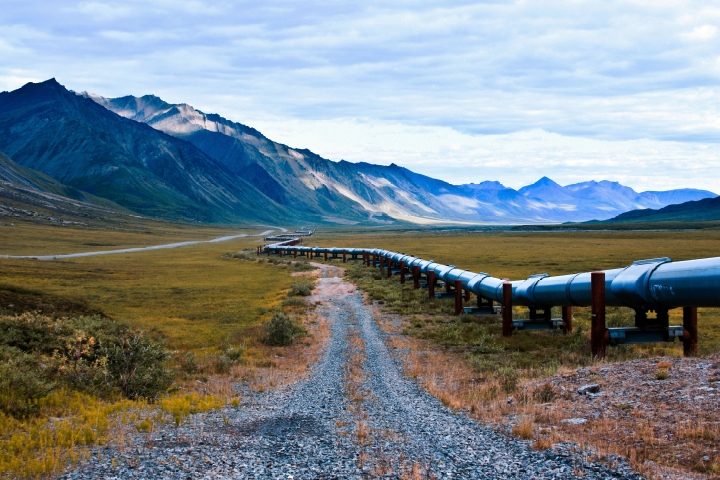
On April 19, the Biden administration took further steps to reduce America’s ability to achieve energy independence. The Department of the Interior’s Bureau of Land Management (BLM) announced that the administration had placed millions of additional acres in Alaska off limits to further extraction of oil and gas.
“Following significant engagement with the public, Alaska Native Tribes, and Alaska Native Corporations, the Bureau of Land Management (BLM) finalized the Management and Protection of the National Petroleum Reserve in Alaska (NPR-A) rule that will ensure maximum protection for significant resource values on the more than 13 million acres of Special Areas in the western Arctic, while supporting subsistence uses and needs for Alaska Native communities,” the BLM announced.
This action followed Biden administration moves last year that put 2.8 million acres in Alaska and in the Arctic Ocean “indefinitely off limits for future oil and gas leasing.”
In total, in just one-year’s time, the Biden administration has placed nearly 16 million acres of potential oil and gas producing land out of reach. Cheering this action, the BLM noted that this included “ensuring [that] the entire United States Arctic Ocean is off limits to new oil and gas leasing.”
The NPR-A — the National Petroleum Reserve in Alaska — was formerly known as Naval Petroleum Reserve No. 4. It consists of 23 million acres on Alaska’s North Slope and was set aside in 1923 as an emergency oil supply for the U.S. Navy. According to figures cited by the Alaska Oil & Gas Association taken from the U.S. Geological Survey, current estimates hold that “there are 8.7 billion barrels of undiscovered oil in the NPR-A.”
In addition to large quantities of oil, there is a vast quantity of natural gas in the region.
The administration’s moves to put these significant resources off-limits to future development were met with derision by those involved in the Alaskan energy industry.
Josiah Patkotak, mayor of the North Slope Borough, call the action “insulting.”
“The Department of the Interior seems to believe that they care about this land more than we do,” Patkotak said. “The elected leaders of the North Slope spoke in unison in opposition to this rule and the rulemaking process. To refuse to listen to our voices is to say that you know better — better than the people who have been this land’s stewards for the past 10,000 years, and who depend on its continued health for their own survival. We deserve the same right to economic prosperity and essential services as the rest of this country, and are being denied the opportunity to take care of our residents and community with this decision. It is insulting and, unfortunately, representative of the federal government’s treatment of our Indigenous voices for decades.”
In March, the Alaska Legislature passed a resolution asking that the Biden administration withdraw its proposal to put the NPR-A off limits. Alaska state Representative Thomas Baker argued in support of the state resolution that the administration’s rule “would turn millions of acres into de facto wilderness, which would preclude any development, any subsistence activities.” Baker continued his critique, saying the measure “would preclude a lot things which are integral to the state of Alaska and the people of my district, and, frankly, the people of all Alaska.” The measure passed the Alaska House with a near unanimous vote.
The Biden administration’s war on energy, which has been in place since the beginning of the administration, is intended to usher in a “green” future that is “decarbonized.” In actual practice, this is a war on the very fundamentals of American economic prosperity. Hydrocarbon fuels and byproducts are fundamental to the success of virtually every economic activity that Americans engage in on a daily basis. To name a few in addition to the obvious fuels that almost all adult Americans rely on for powering basic transportation, manufacturing of all kinds relies on hydrocarbons for energy, lubrication, and for production feedstocks that result in nearly every product sold in America. Higher prices for hydrocarbons are the result of increased scarcity, which the administration is imposing artificially for ideological purposes. This scarcity hurts every American, and for those on the margin pushes them further towards insolvency and the even worse consequences that may follow.
Indeed, the artificial restrictions on oil and gas production favored by the administration put the very security of the nation at risk. In early April, the administration announced that it would not refill the Strategic Petroleum Reserve because of rising oil prices.
If the Biden administration’s plan is to weaken America, then it is clear that the administration is enjoying record success — success that comes directly at the expense of the American people.



